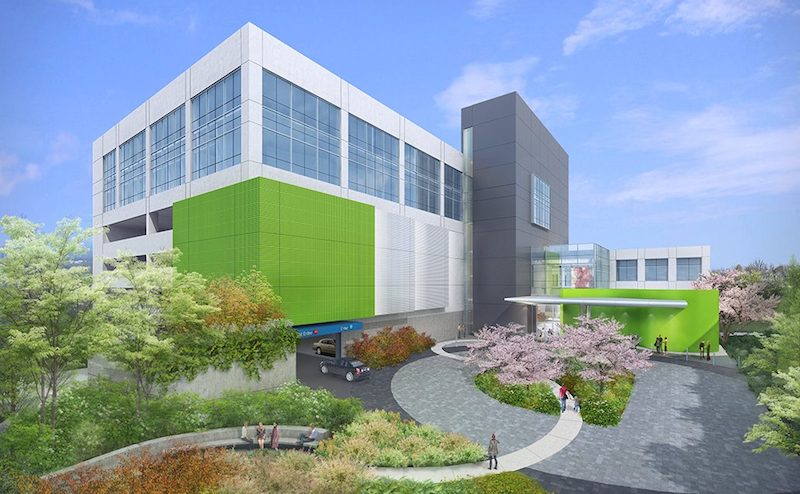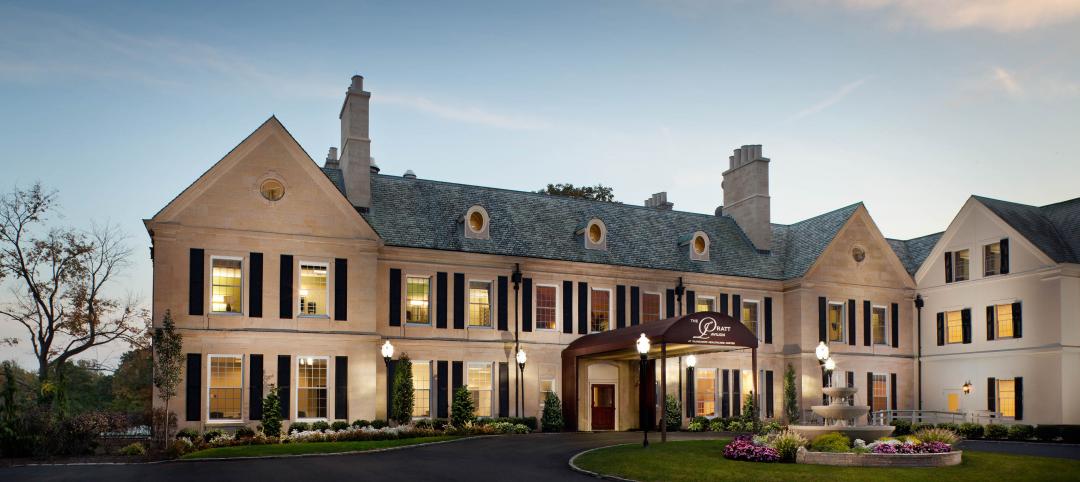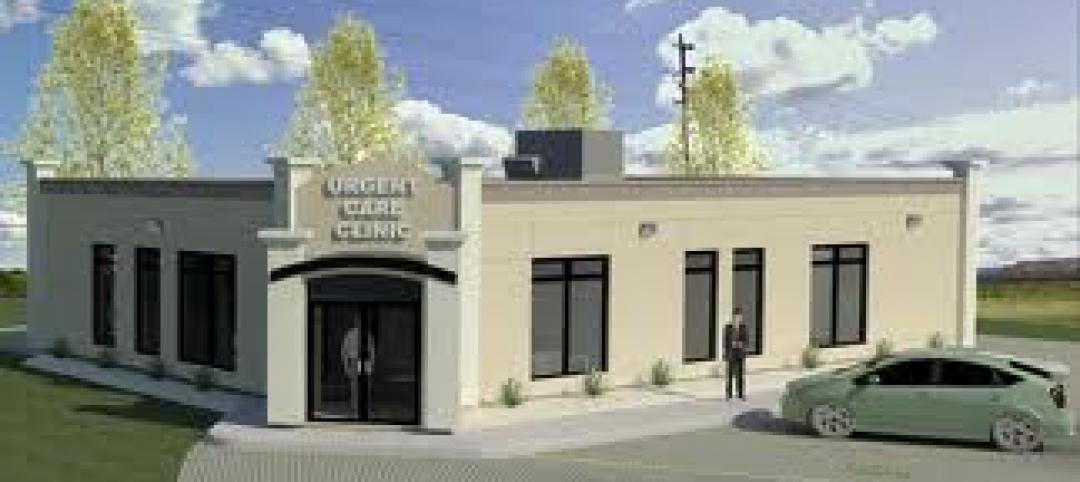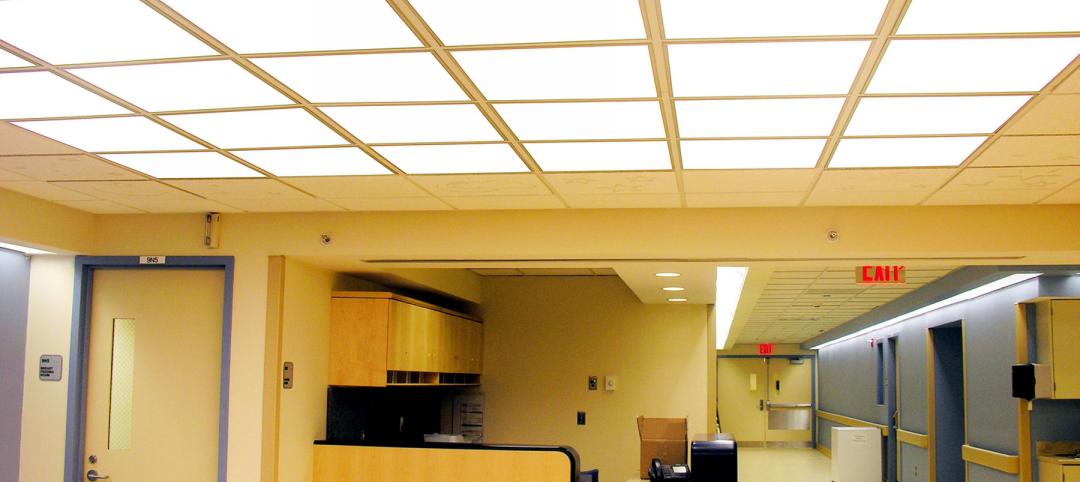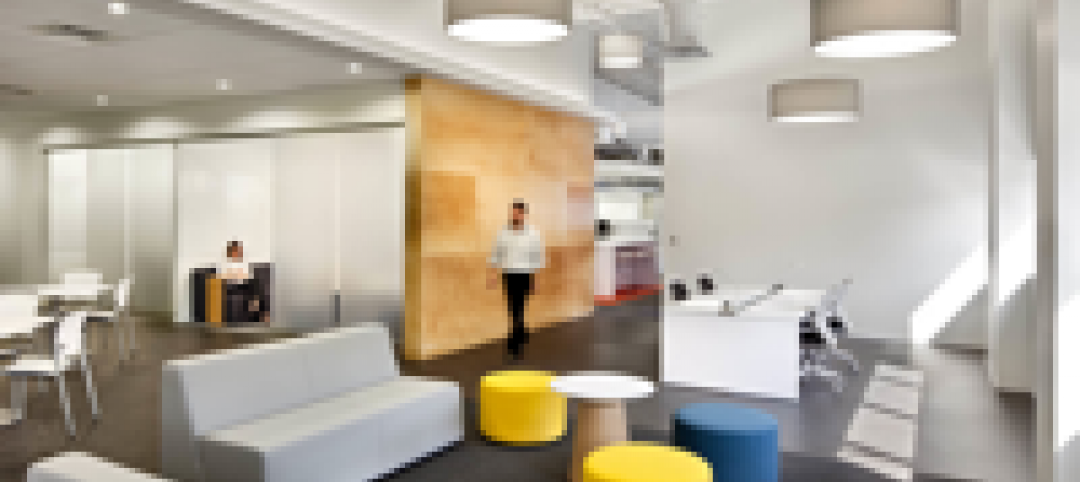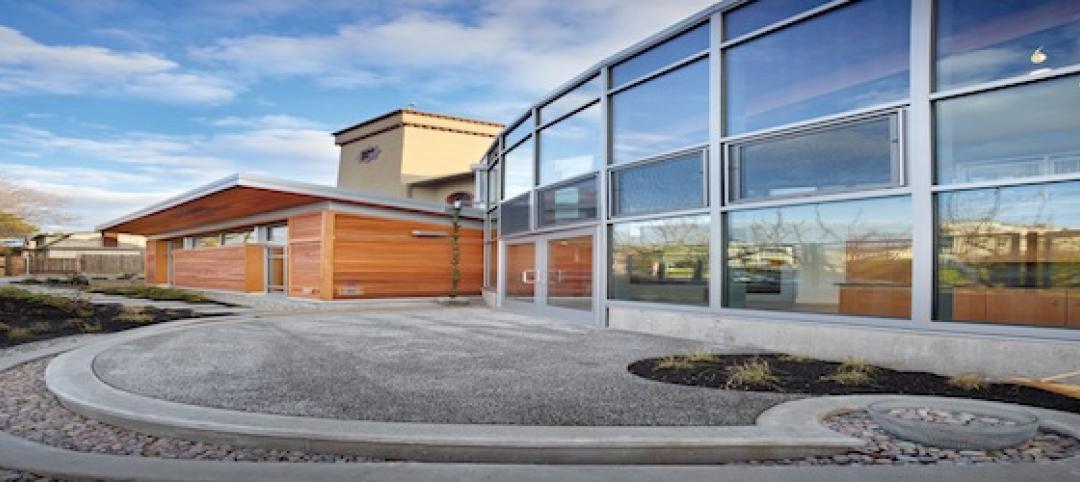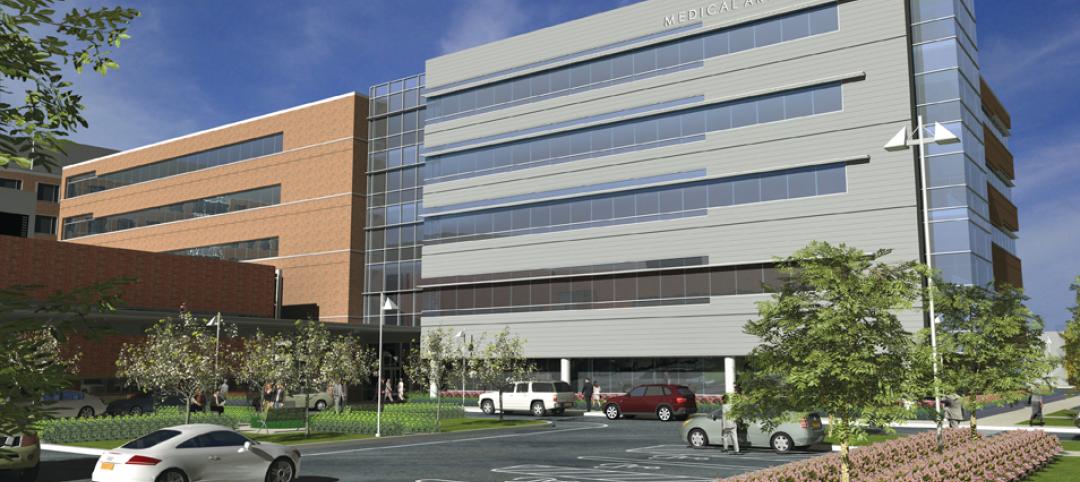By 2025, there could be 65.2 million people in the U.S. aged 65 years old and up, compared to 47.7 million in 2015. That increase would be exponentially higher by percentage than the growth for Americans under 64, and would put seniors ever closer to 20% of the country’s total population.
The National Center for Health Statistics estimates that the number of annual primary care office visits for seniors is now more than 90 per 100 people, versus around 70 per 100 people for the next closest age group, under 15 years olds. As seniors multiply, so will the need for healthcare and, potentially, medical office space.
A new report from Transwestern estimates that over 150,000 healthcare practitioners could be added to the economy over the next two years. Therefore, the total demand for medical office space in the U.S. for physical, clinical, mental, and dental services could range anywhere from 150.5 million sf to 225.8 million sf, as per estimates by MedSpace.
As of the second quarter of 2018, there were 110 million sf of existing or under-construction medical office space in the U.S. An example of new projects is the $25.3 million, 52,704-sf, three-story OSF HealthCare medical office building that recently broke ground in Bloomington, Ill.
These numbers, though, indicate that there could be a serious shortfall in office availability going forward. “Absorption of this demand is impossible,” states the report’s author, Elizabeth Norton, Transwestern’s Managing Research Director, Mid-Atlantic Region.
Without a major shift in how healthcare is delivered, the country’s most populous areas—and especially New York, Dallas-Fort Worth, Atlanta, Denver, and Miami-Fort Lauderdale—would have serious difficulties accommodating practitioners wishing to serve patients from a medical office, even at the low end of the projected growth range.
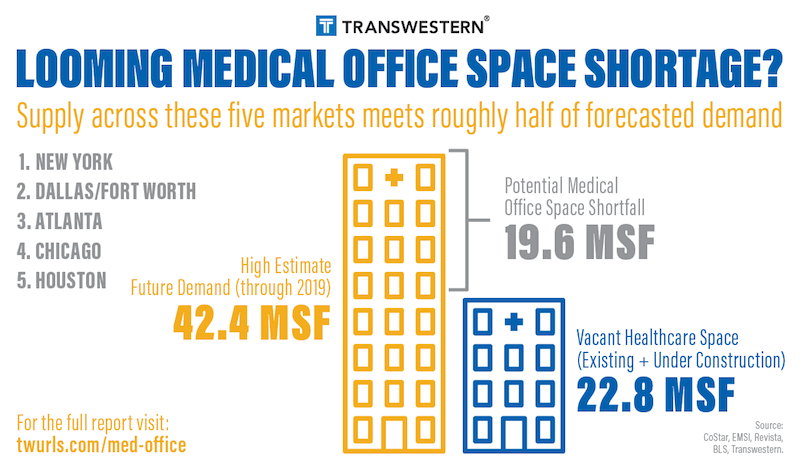
The country, and particularly its largest metros, are facing a serious shortage in available medical office space. Image: Transwestern
There are alternatives, suggests Norton, such as leasing in conventional office buildings where there’s ample space available. Repurposing empty retail spaces for medical use is another.
Norton also points to the emergence of new forms of healthcare, such as telemedicine, digital health, and shared service centers, as options that “could suppress future demand to some degree,” albeit depending on how quickly these nascent approaches catch on within the healthcare sector.
Earlier this year, the marketing intelligence firm Transparency Market Research estimated in a report that the so-called telehealth market in the U.S. would expand by nearly 15% to $2.8 billion by 2025. “North America and Europe are projected to dominate the global telehealth market … driven by government incentives …, technological advancements, and efforts of key players to expand their market presence,” the report stated.
Transparency Market Research has also estimated that a more robust digital health market in North America could expand by 13.4% annually to $80 billion by 2025.
Related Stories
| Nov 2, 2011
John W. Baumgarten Architect, P.C, wins AIA Long Island Chapter‘s Healthcare Award for Renovation
The two-story lobby features inlaid marble floors and wood-paneled wainscoting that pays homage to the building’s history.
| Oct 20, 2011
Johnson Controls appoints Wojciechowski to lead real estate and facilities management business for Global Technology sector
Wojciechowski will be responsible for leading the continued growth of the technology vertical market, while building on the expertise the company has developed serving multinational technology companies.
| Oct 6, 2011
GREENBUILD 2011: Dow Corning features new silicone weather barrier sealant
Modular Design Architecture >Dow Corning 758 sealant used in GreenZone modular high-performance medical facility.
| Sep 30, 2011
Kilbourn joins Perkins Eastman
Kilbourn joins with more than 28 years of design and planning experience for communities, buildings, and interiors in hospitality, retail/mixed-use, corporate office, and healthcare.
| Sep 26, 2011
Energy efficient LED flat panels installed at N.Y. metro hospitals
LED Flat Panels deliver fully dimmable, energy efficient high quality lighting with even, shadow-free distribution, and excellent 85 Color Rendering Index.
| Sep 20, 2011
Francis Cauffman wins two IDA design awards
The PA/NJ/DE Chapter of the International Interior Design Association (IIDA) has presented the Francis Cauffman architecture firm with two awards: the Best Interior Design of 2011 for the W. L. Gore offices in Elkton, MD, and the President’s Choice Award for St. Joseph’s Regional Medical Center in Paterson, NJ.
| Sep 12, 2011
Living Buildings: Are AEC Firms up to the Challenge?
Modular Architecture > You’ve done a LEED Gold or two, maybe even a LEED Platinum. But are you and your firm ready to take on the Living Building Challenge? Think twice before you say yes.
| May 18, 2011
New center provides home to medical specialties
Construction has begun on the 150,000-sf Medical Arts Pavilion at the University Medical Center in Princeton, N.J.


